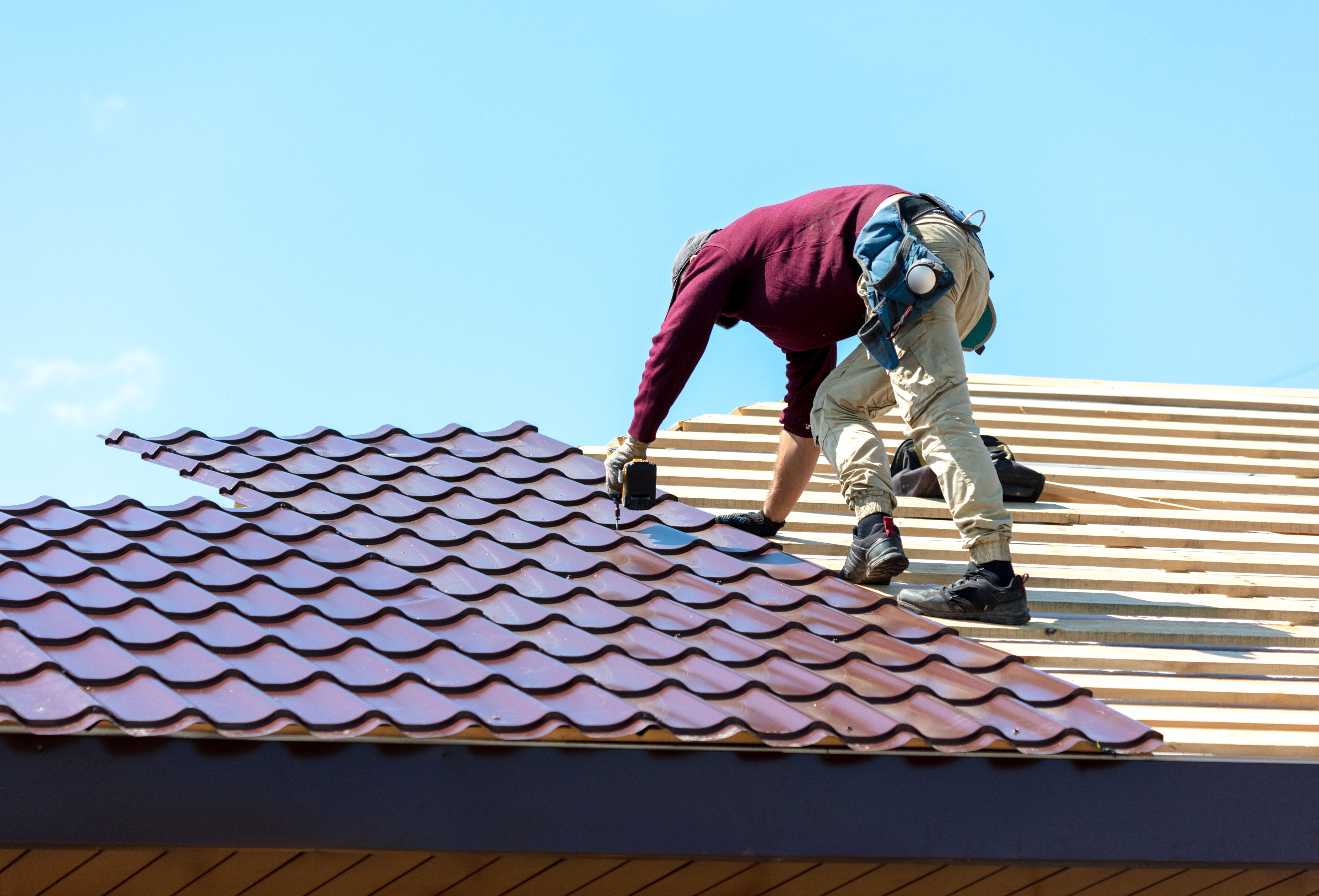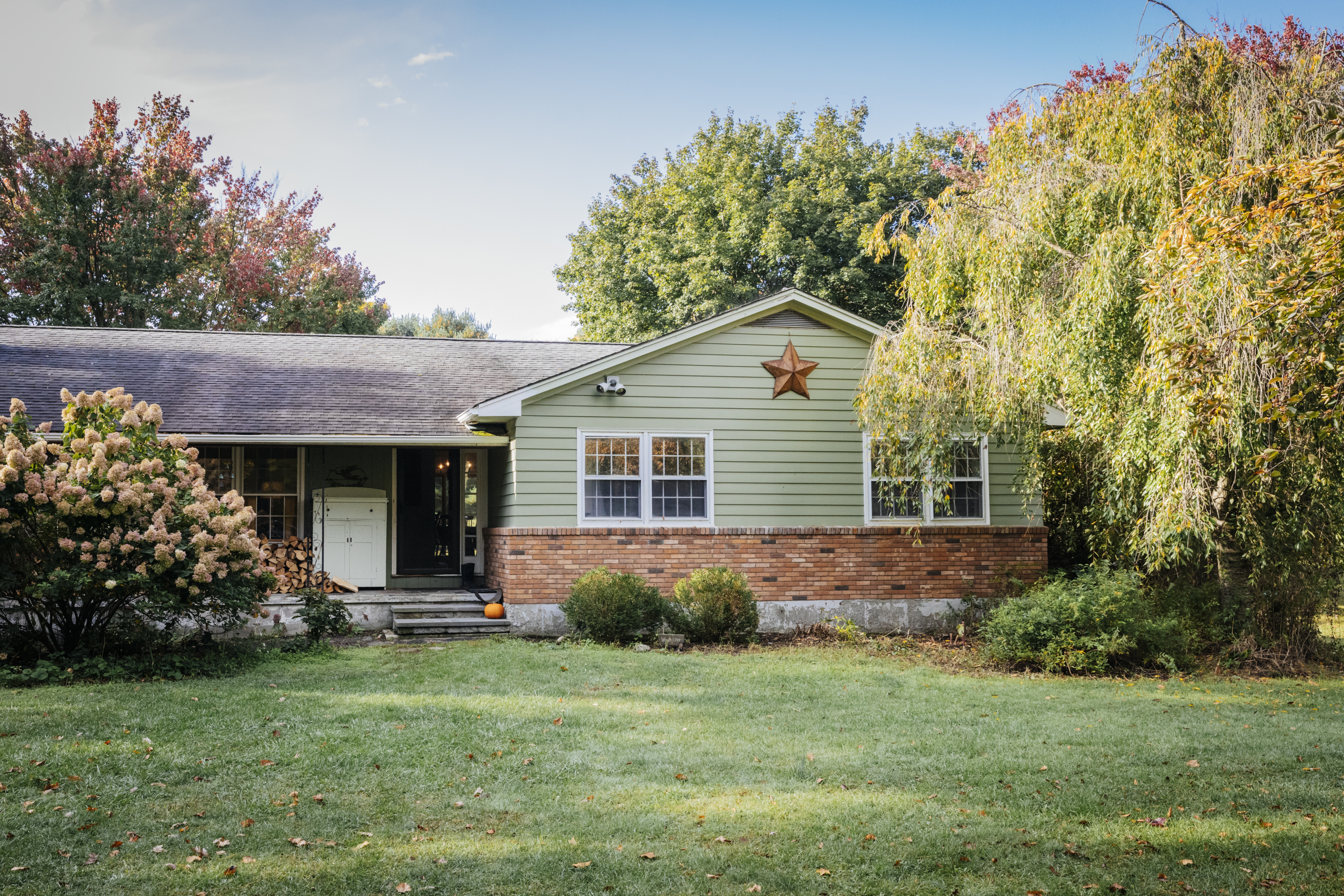
Need a new roof in the city that never sleeps? Learn about metal roof costs in New York to see if this durable roofing material is within your budget.
Choosing between bitumen and asphalt can be easy


Bitumen rolls are best for low slope and flat roofs.
Asphalt shingles have a longer lifespan and are more durable.
Which one you choose depends on your roof type and budget.
A leaky roof is a headache for any homeowner and needs to be addressed, pronto. If you find yourself needing to re-roof part of your home, then you will need to choose the right roofing material. Bitumen rolls and asphalt shingles are among the most common types, so let's take a closer look at bitumen versus asphalt to see how they differ and which one works best in different categories.
While bitumen and asphalt are both used as roofing materials, there are some key differences that will impact which material you ultimately choose. Bitumen comes in rolls that are easily unrolled and secured onto the roof, whereas asphalt roofing comes in the form of shingles, with each shingle needing to be secured individually to the decking. Asphalt shingles cost less than bitumen roofing and are more durable, but if you are in need of temporary roofing, bitumen fits the bill better than asphalt.
| Bitumen | Asphalt |
|---|---|
| Affordable | Affordable |
| Easy to install | Durable |
| Lightweight | Aesthetically pleasing |
| Best for flat roofs and outbuildings | Best for residential applications |
Bitumen roll, or rolled roofing, is an asphalt-based, fiber-reinforced roof covering that is most commonly sold in 33-foot rolls that are 36 inches wide. It is fairly lightweight and, while comparatively durable for its type, bitumen roll is generally considered a temporary roof covering, apart from when used for flat roofs and outbuildings like sheds, workshops, and garages.
Pro Tip: You can also buy modified bitumen as a two-ply system; it has a base and a cap sheet. Without the base sheet most manufacturers warranty the cap sheet for 12 years and, with the base sheet, it is warrantied for 15.
| Pros | Cons |
|---|---|
| Affordable | Less durable than other materials |
| Lightweight | Considered temporary in most cases |
| Easy to install | Absorbs heat |
Best for:
Outbuildings like sheds and garages
Temporary roofing to protect roof deck until permanent roofing is installed
Bitumen rolls cost between $2 and $5.50 per square foot, so it is one of the more affordable roofing materials. It comes as one large roll and is lightweight and easy to install. This material works great for flat roofs and for outbuildings, like sheds, garages, and shops. It can also be used as a temporary roofing material to protect the roof until a permanent roofing material can be installed.
Bitumen is not well suited to use on a residential roof with a standard or steep pitch. While it is affordable, it is less durable and aesthetically pleasing than other roofing materials. Bitumen rolls are black, which means they absorb heat rather than reflect it, which can lead to higher cooling bills in the summer months. This is another reason why it is recommended for outbuildings where temperature control is not as important.
Asphalt shingles are thicker, precut rectangular roof coverings that overlap when installed. The material of choice for pitched roofs, asphalt shingles are made from asphalt and, usually, fiberglass mats. They have a comparatively long lifespan and are extremely durable, but not recommended for low-slope roofs. Most manufacturers rate their shingles from 20 to 50 years.
"In general, shingles are recommended for 3:12 pitch or more," says Ami Feller, Expert Review Board member and owner of Roofer Chicks in New Braunfels, Texas. "You can install them with a pitch of 2:12, but I recommend putting ice and water shield under the shingles at that low of a pitch. Modified bitumen is recommended for 5:12 to 3:12 pitch roofs. Mod bit is not made to handle ponding water, so you have to have a slope for it to work properly, even if it's just a small slope."
| Pros | Pros |
|---|---|
| Affordable | Not recommended for low-slope roofs |
| Lightweight | Not aesthetically unique |
| For use in residential applications |
Best for:
Residential applications
Pitched roofs
Asphalt shingles are very affordable, between $1 and $1.20 per square foot, and last between 20 and 50 years when properly installed and maintained. They are more durable than bitumen roofing and are a good choice for residential roofs with a steeper pitch. Because they are lightweight, they do not require any additional structural support and can be installed on most roofs. While they are not the most energy efficient roofing material, they do rank better than bitumen in terms of energy efficiency.
Asphalt shingles are the most popular roofing material for residential applications in the United States. This is because they are affordable, durable, aesthetically pleasing, and easy to install—all seemingly pros. But if you are looking for a unique aesthetic, other materials, like a cedar shake roof or slate tiles, can offer more than asphalt shingles. They are not recommended for low-slope roofs and they do require maintenance to replace broken or cracked shingles over the life of the roof.

Whichever material you choose depends on a number of factors including what you are roofing, the type of roof you have, and your budget. Aside from budget, the biggest deciding factor is the type of roof you are covering. If you are covering a shed or garage roof, you may not be too bothered about appearance or longevity, in which case bitumen roll is a smart, cost-effective choice.
If you are covering a low-slope or flat roof, with a pitch under 2:12, you will need to use bitumen rolls. While shingles are more durable, if you install them on a low-slope or no-slope roof, because the water tends to pool or run off more slowly, there is a much greater chance that water will seep in through the joints between shingles.
If budget is less of a concern and you are covering a pitched roof, asphalt shingles are your best option. This is because shingles are longer-lasting, have a more traditional and pleasing appearance, and are considerably more durable. You can also get a roofing contractor near you to weigh in on the options and give their professional opinion.

When you need to install new roofing, there are a number of different elements to consider. Your local roofing contractor can advise you on the best option for your specific situation, but let's take a look at which roof covering wins in these key categories. Ask your roofing contractor what they recommend to find out if asphalt shingles are right for your roof.
When you are weighing roof replacement cost, bitumen rolls typically cost less per square foot upfront, but asphalt shingles last longer, and thus are a better investment long-term. Asphalt shingles cost $30 to $60 per 33 square feet, plus $1.65 to $$2.65 per 33 square feet for felt paper underlayment. Bitumen rolls cost $10 to $20 per 33 feet, plus you will need some mastic, which costs about $40 for a large bucket. For both types, you will also need to account for hiring a local roofer, which costs an additional $40 to $80 per hour.
Shingles generally look more pleasing and have a more traditional appearance; however, bitumen rolls look perfectly acceptable on flat roofs and as roof coverings on sheds, outbuildings, and garages.
Even high-quality bitumen rolls cannot outlast asphalt shingles. Bitumen rolls last around eight to 10 years, while high-end asphalt shingles can last 30 to 50 years. Shingles are also more durable as they are thicker and stronger. Plus, if one or two shingles are damaged, you can simply replace those ones. With bitumen, if a tear or similar damage occurs, you can patch it, but it is not always easy. In some cases, you may have to replace the whole strip.
Bitumen is the easiest to install when compared to asphalt shingles. Bitumen is installed in rolls three feet wide and 33 feet long, with nails placed at regular intervals along the length. Each course, or strip, should overlap the previous one by about four inches, and each strip should be sealed with roofing cement. When installing shingles, each has to be nailed into place individually, which is a more time-consuming process.
From start to finish, Classic Roofing was excellent. Fair pricing and top-notch workmanship.
Highly recommend Galaxy contractors all roofing and gutter needs.
They repaired a leak in my roof. I found them to be very friendly and knowledgeable. They arrived when they said they would and didn't keep me waiting. They made the repair and then inspected the rest of the roof and sealed all of the other flashings. Great job!
Very professional and timely service. Robert was detailed in explanation of his service and the state of my roof
From average costs to expert advice, get all the answers you need to get your job done.

Need a new roof in the city that never sleeps? Learn about metal roof costs in New York to see if this durable roofing material is within your budget.

Learn about average roof repair costs in New York City and what factors can affect your total to set your budget appropriately.

A new roof boosts curb appeal and home value and keeps your property protected. Learn about roof replacement costs in New York City to budget accurately.

There is a calculation for how many soffit vents you need, depending on your square footage. Discover where to install them and what happens to your attic air during winter.

It's hard to walk down the street without spotting a gable roof. Here are the main pros and cons of gable roofs and how they stand up against the elements.

A bad roofing job can compromise the safety of your house. Learn the signs of a bad roofing job so you can nip issues in the bud.